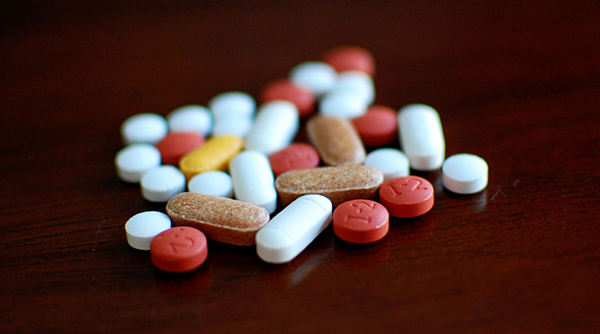- La Feria Community Holds Succesful Business Mixer Event
- Little Nashville to Take Place in Downtown Mercedes
- Lions Basketball Captures District Gold
- La Feria ISD Students Compete in Regional Chess Tournament
- Lions End First Half of 32-4A on a High Note
- La Feria ISD Held Another Successful Parent Conference
- Strong Appearance for Lions at Hidalgo Power Meet
- LFECHS Students Get to Meet Local Actress
- Students Participate in Marine Biology Camp
- Two LFECHS Students Qualify for All-State Band
Texans Taking Precautions for Poison Prevention Week
- Updated: March 27, 2015
by John Michaelson/TNS

On average, the U.S. sees at least two million accidental poisonings each year, so families are being urged to make sure any dangerous medications or household products are kept locked up or out of reach. Photo: Jamie/Flickr
AUSTIN, Texas – As National Poison Prevention Week continues, local experts say some simple steps around the home can help reduce the chances of accidental poisoning, especially among children.
Poisoning is the leading cause of death from injuries in the U.S. Lizette Villarreal, assistant director with the South Texas Poison Center, says that while everyone is at risk, those most often affected are children under age six. Any products that could be dangerous should be kept out of reach or locked up.
“The most common things are little kiddos getting into parents’ or grandparents’ medications,” says Villarreal. “It can really be anything. We often get calls about just common household products that you find every day in everyone’s home.”
Villarreal says among the newer concerns are e-cigarettes, with flavored liquid nicotine, and laundry pods, which often have bright colors and can be mistaken by young children as candy.
In the case of a poisoning, Villarreal says the person should not drink water or milk or try to make themselves throw up, which can make things worse depending on what’s been ingested. Instead, she says, they should immediately call the poison hotline at 1-800-222-1222.
“By calling that number, you can speak live to one of poison specialists,” says Villarreal. “They’re healthcare professionals that are specially-trained to help calm parents down, hear your concern, what your issue is, and help guide you on what the best treatment for you or your child is.”
Of all the people who call the poison hotline from home, Villarreal says the majority don’t have to go to the hospital, but can stay at home and follow treatment recommendations.
More than two million poisonings are reported each year to the dozens of poison control centers in the U.S., with more than 90 percent occurring in the home.


